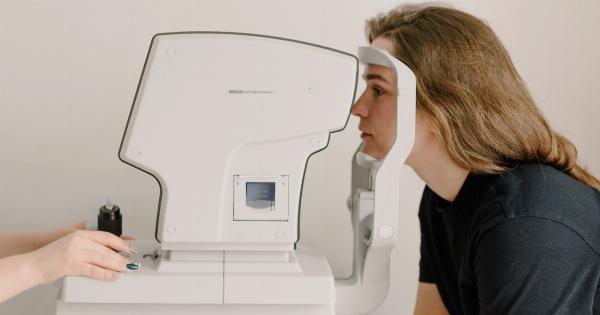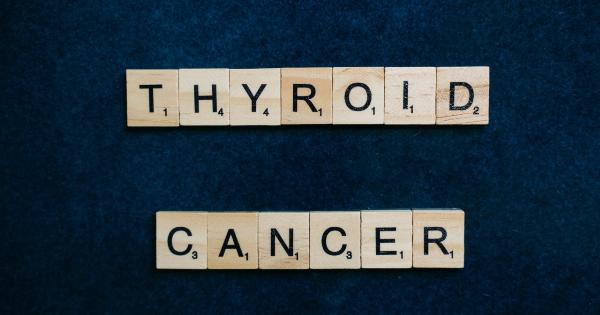Iodine is an essential mineral that is crucial for the proper functioning of our bodies.
It is primarily used by the thyroid gland to produce hormones that regulate metabolism and support the development and maintenance of the brain, heart, and other organs. Unfortunately, many people around the world suffer from iodine deficiency, which can have significant health implications.
In this article, we will explore the common symptoms of iodine deficiency and discuss ways to ensure you are getting enough iodine in your diet.
The Role of Iodine in the Body
Before we delve into the symptoms of iodine deficiency, let’s understand why iodine is so important for our overall health.
The thyroid gland, which is located in the neck, requires iodine to produce two main hormones, triiodothyronine (T3) and thyroxine (T4). These hormones play a critical role in regulating metabolism, controlling body temperature, and supporting the growth and development of various organs. Iodine deficiency can impair thyroid function and lead to a range of health problems.
Symptoms of Iodine Deficiency
Iodine deficiency can manifest in various ways, and the symptoms may vary from mild to severe. Here are some common signs that may indicate iodine deficiency:.
1. Weight Gain
Unexplained weight gain or difficulty losing weight despite maintaining a healthy diet and exercise routine can be a symptom of iodine deficiency.
When iodine levels are low, the thyroid gland cannot produce enough hormones to regulate the metabolic rate, leading to weight gain.
2. Fatigue and Weakness
Feeling tired, sluggish, or weak can be indicative of iodine deficiency. When the thyroid gland is unable to produce sufficient hormones, it can result in low energy levels and reduced stamina.
3. Hair Loss
Iodine is crucial for healthy hair growth. Inadequate iodine intake can lead to hair loss, brittle hair, and even thinning of hair in severe cases.
If you notice an increase in hair shedding or significant changes in your hair’s texture and thickness, it may be worth exploring iodine deficiency as a possible cause.
4. Dry Skin
Iodine deficiency can cause dry, flaky skin that lacks moisture. Your skin may appear rough or scaly, and you may experience itching or irritation. Adequate iodine levels are necessary for maintaining skin health and hydration.
5. Swelling in the Neck (Goiter)
One of the most recognizable symptoms of iodine deficiency is the development of a goiter, which is an enlarged thyroid gland.
As the thyroid tries to compensate for the insufficient iodine, it may enlarge, resulting in a visible swelling at the base of the neck. However, it’s important to note that not all goiters are caused by iodine deficiency, as other factors such as autoimmune diseases can also lead to their development.
6. Impaired Cognitive Function
Iodine plays a critical role in brain development, particularly during pregnancy and early childhood. Inadequate iodine intake during these periods can lead to cognitive impairments and lower IQ levels.
Children born to mothers with severe iodine deficiency are at higher risk of experiencing developmental delays and learning disabilities.
7. Memory Problems
Difficulty with memory and concentration can be associated with iodine deficiency. The brain relies on adequate levels of iodine to function optimally, and insufficient iodine can negatively impact cognitive abilities.
8. Irregular Menstrual Cycles
Iodine deficiency can disrupt normal hormone production, leading to irregular menstrual cycles. Women with low iodine levels may experience heavy or prolonged periods, or their cycles may become irregular or less frequent.
9. Infertility and Pregnancy Complications
Iodine is crucial for reproductive health, and both men and women require sufficient iodine levels for optimal fertility.
Iodine deficiency can contribute to reproductive issues, including difficulty conceiving and increased risk of pregnancy complications such as miscarriages, stillbirths, and preterm births.
10. Weak Immune System
Iodine deficiency weakens the immune system, making individuals more susceptible to infections. Adequate iodine levels are necessary for the production of antimicrobial proteins that help fight off pathogens and support a healthy immune response.
Ensuring Sufficient Iodine Intake
If you suspect you may have an iodine deficiency or are experiencing any of the symptoms mentioned above, it is essential to consult a healthcare professional for proper diagnosis and treatment.
They may recommend iodine supplements or alterations to your diet to increase iodine intake. However, self-diagnosis and excessive iodine supplementation can be harmful, so it is crucial to seek professional advice.
Increasing your consumption of iodine-rich foods is an effective way to maintain adequate iodine levels. Some examples of iodine-rich foods include seaweed, seafood (such as fish and shrimp), dairy products (milk, yogurt), eggs, and iodized salt.
Conclusion
Iodine deficiency can have far-reaching effects on our health and well-being, affecting various bodily functions and systems.
By recognizing the symptoms associated with iodine deficiency, we can take proactive steps to ensure we are getting sufficient iodine in our diets. Remember, if you suspect you have an iodine deficiency, it’s important to consult a healthcare professional for accurate diagnosis and appropriate treatment.




























